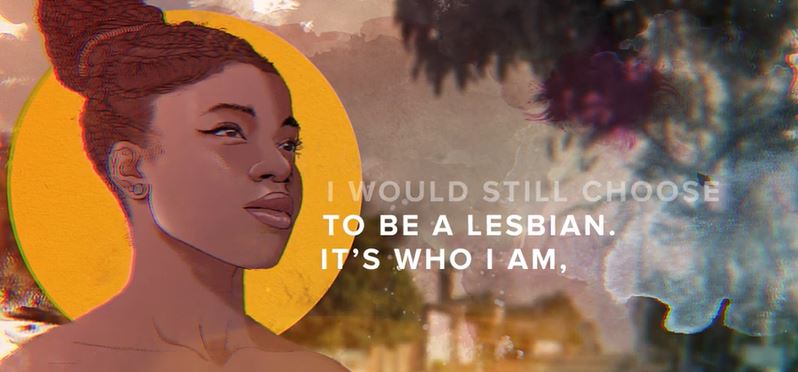Project lifts the voices of Eswatini’s LGBT people
Voices of Eswatini, a new project from Eswatini Sexual and Gender Minorities (ESGM) and All Out, amplifies the voices of the small but strong LGBT community in a tiny kingdom in southern Africa where same-sex relations are illegal.

Same-sex sexual activity is criminalized in Eswatini under the colonial-era Roman-Dutch common law that is still applied in the country, which officially changed its name from Swaziland in 2018. The Voices of Eswatini campaign by ESGM and the online advocacy group All Out seeks to convince the government to repeal the prohibitions against sodomy.
The project presents stories from LGBT people in video, audio, and print format to help other people in Eswatini understand their experiences, and how discrimination, persecution, and social stigma harm them.
S’Thembile, a 27-year-old lesbian, says she was gang raped by a group of the police who declared that, because she was a lesbian, her “body is going to waste.”
“I was angry but then I didn’t want to let my mind stay in all those things. I went through a lot of counselling,” S’Thembile says in Voices of Eswatini. “For me, being an LGBTI person, it hasn’t been the easiest and the smoothest journey of my life but if I have to live and had a chance of choosing, I would still choose to be a lesbian. It’s who I am. It’s a life that God has given me.”
Many of the queer Swazis featured in the project say that they routinely face harassment and violence in their communities, and that the police will give them no help.
“After I reported an assault to the cops with no success, all they asked me was, ‘Am I gay?’ Ignoring the fact that I had been violated and fought for my life,” says Thando, a gay 27-year-old man.
“I have had suicidal thoughts that flood my mind and I tried so much or so many times to take my life but somehow I could not go through with it,” Thando says. “I have so much to do with my life, and the friends I have now have made me strong. They’ve kept me strong and sometimes I wonder what and where would I be without them.”
Many queer Swazis flee to neighboring South Africa, where LGBT people have more legal rights and protections, as Thobile Shiba did when her parents forced her to drop out of school when she came out as a lesbian.
“I went to Nelspruit, South Africa, where I felt at home and found other lesbians. When I’d would come back home, I’d find that the news of me being a lesbian were still doing the rounds and it really didn’t sit well with me,” Shiba says.
Shiba says she wants to see the Eswatini government promote tolerance of LGBT people so that families can stay together.
“To change the situation in Swaziland [which remains a common name for Eswatini] for people like me would be to put educative measures into place so the parents could learn about such issues,” Shiba says. “We as children suffer when we being forced out of our homes because in the rural areas people like me are branded as demons.”
A young gay man named Mpolweni shares a story of an abusive relationship that illustrates how the lack of legal rights for queer people increases danger even from intimate partners.
“He took advantage of me knowing that our same-sex relationships are not legal in our country. Every time I had an argument, he’d beat me up,” Mpolweni says. “I ended up telling myself, ‘This is not how I should be living my life.’ But then it was like jumping from the frying pan to the fire because at home they neglected me, disowned me actually.”
Still, Mpolweni has hope that tolerance can improve in Eswatini.
“Maybe if they can treat us as normal people because we are normal,” he says. “There is nothing that is abnormal about us except our sexual preferences and to be recognized legally like everything we want to do, there shouldn’t be any hiccups along the way.”
Related articles:
- ‘Join us at the first-ever Pride celebration in Swaziland’
- Southern African Anglicans to LGBT people: Welcome (




Maurice Tomlinson: My mother’s queer love